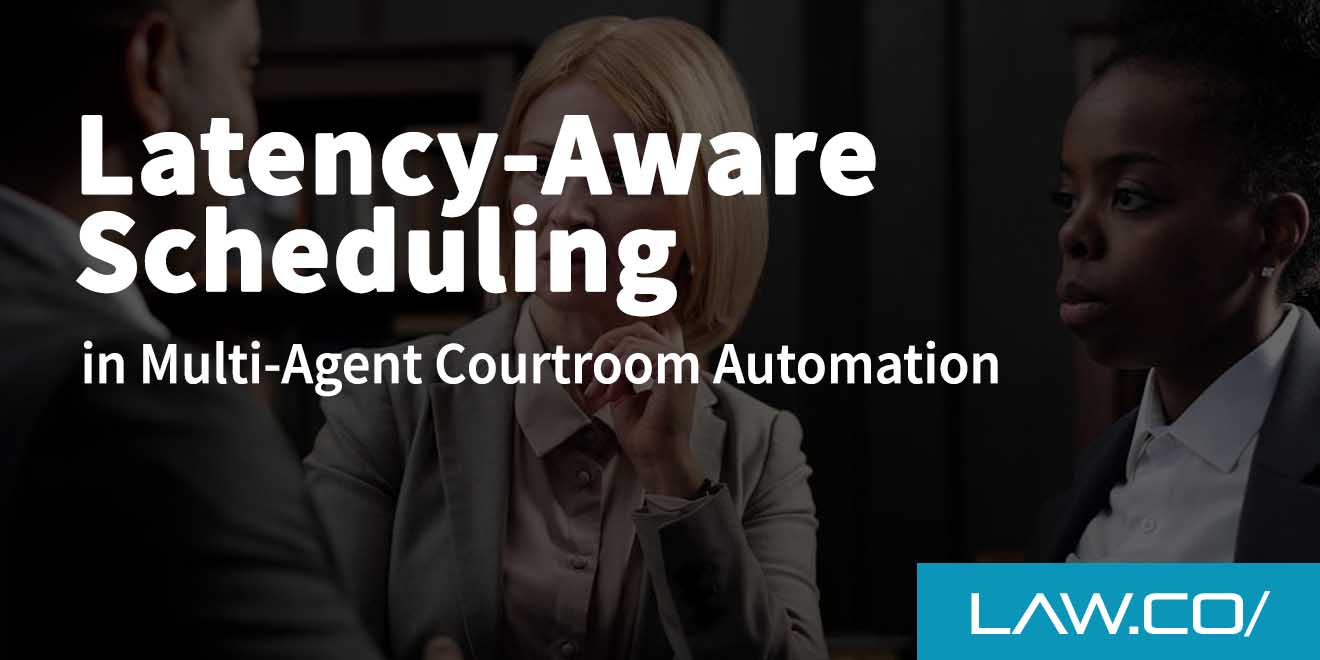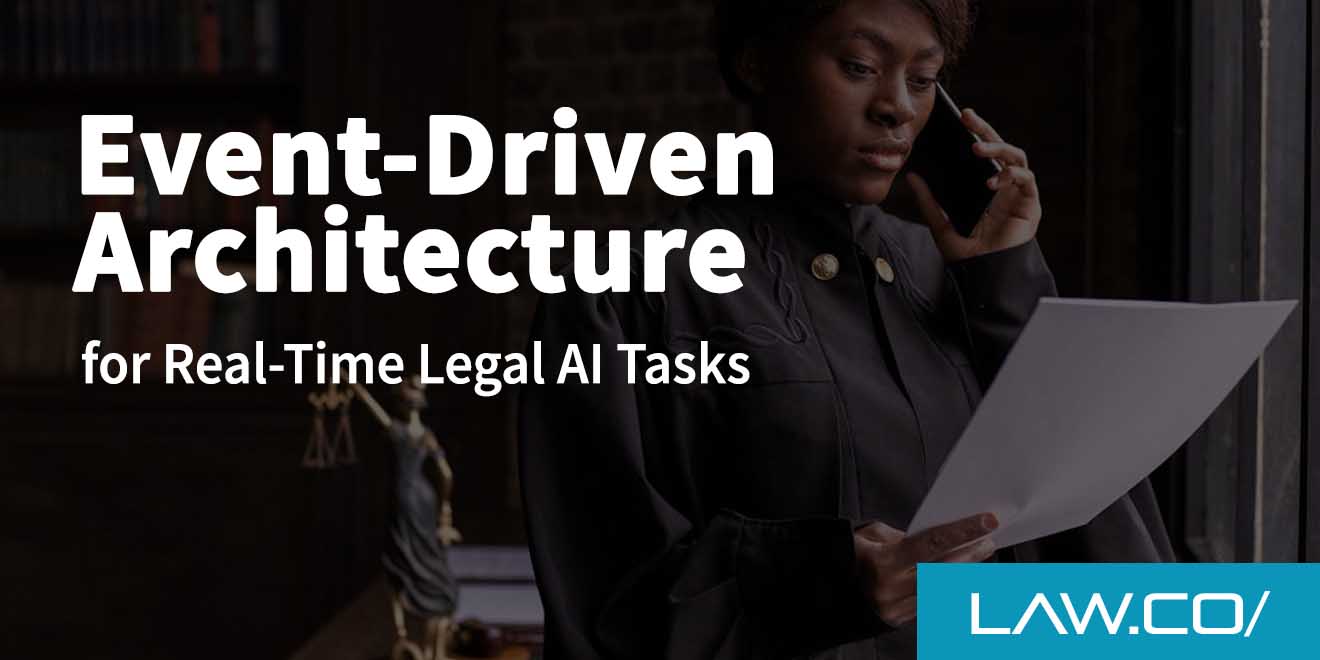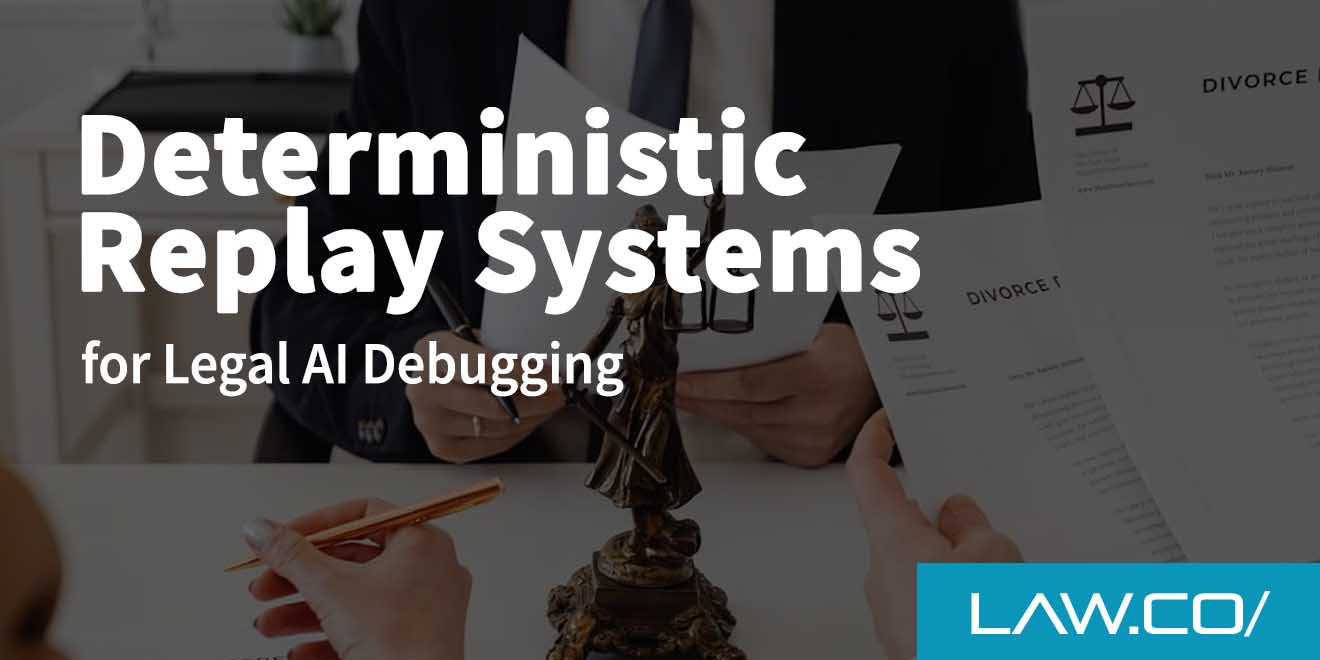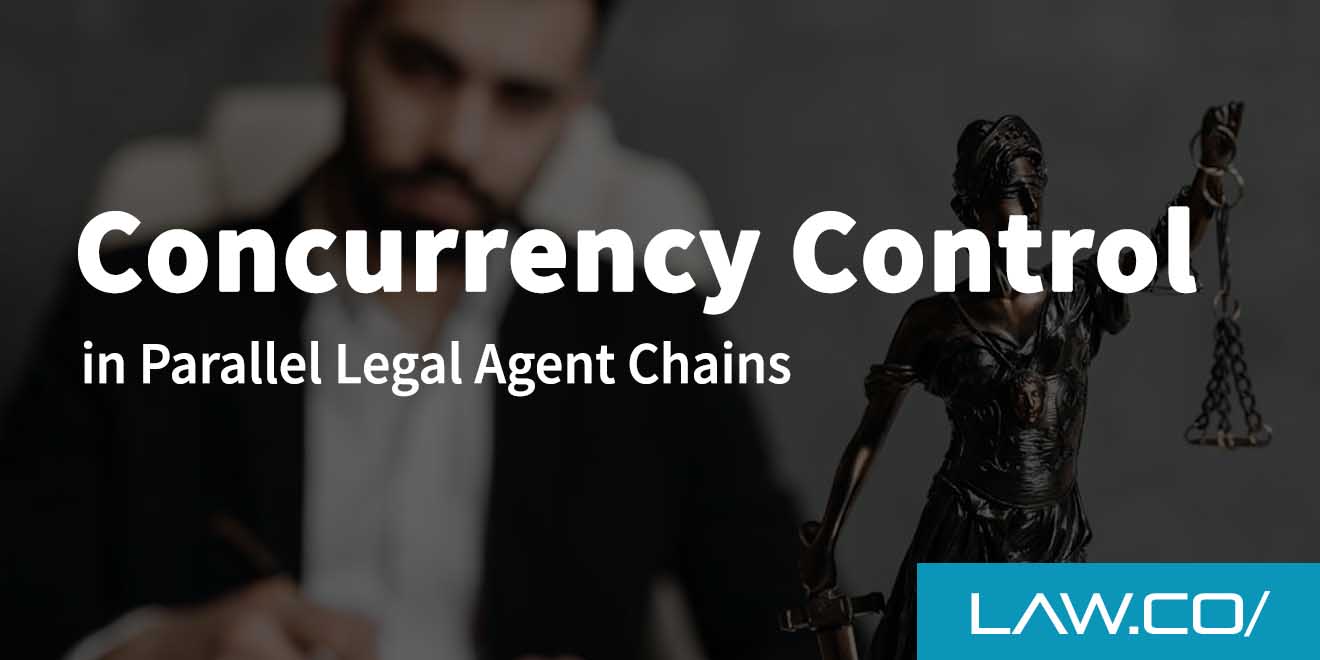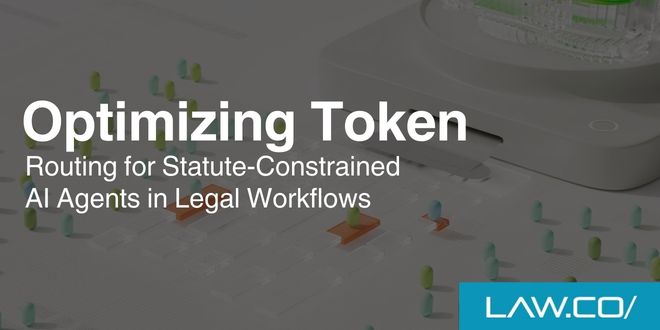

Can Small Law Firms Trust Generative AI?
Unless you’re living under a rock, you’ve probably become acquainted with the breakthroughs in generative AI we’ve witnessed in the past year.With tools like GPT-4, it’s now possible to quickly and easily generate text – and impressively well-written text – based on almost any conceivable prompt. You can ask it questions. You can get it to summarize complex sections of text for easier comprehensibility. You can even have a full-on conversation with it.Big law firms are already using generative AI to fuel their legal research, document drafting, and more. In fact, they’ve been using AI tools for years.But now that AI has become both more powerful and more democratized, it’s time for smaller players to step up and start reaping the benefits.The question is, can small law firms really afford to trust generative AI?
The Unique Challenges of Small Law Firms

Generative AI is a tool worth considering for any law firm, but small law firms and solo practices must keep additional considerations in mind.For example:
- Competition. One of the biggest problems that small and solo law firms face is competition from bigger, more established firms. These bigger firms typically have a longer history, access to more resources, a more established reputation, and the ability to market and advertise more effectively. On one hand, this makes generative AI more appealing, since having access to the same level of technology as your bigger, more established competitors can put you on somewhat even footing; conversely, if your biggest competitors are all using AI, and you're still doing everything manually, you're going to be at an even bigger disadvantage than you were before. Also, if you can't trust generative AI, or if you use it incorrectly, a single issue could cause the collapse of your firm; individual, isolated mistakes don't have as much of an impact on a larger practice.
- Staffing. Small law firms typically have only a few staff members, and solo practices may only have one or two supportive staff members. This presents a couple of unique wrinkles to add to the generative AI discussion. First, the benefits of generative AI are somewhat muted, since a small number of people are going to be using the platform. At scale, if you have hundreds of people using generative AI, you could literally save millions of dollars. But if you're only saving yourself a few hours, the math isn't quite so appealing. That said, the main reason small firms try to keep a lean staff is to save money – and with the power of AI, you can keep your staff even leaner.
- Overhead and costs. Bigger law firms have the luxury of spending money more loosely, while smaller law firms must carefully control overhead and other costs associated with the business. Investing a significant chunk of money into a relatively new tool can easily be perceived as a risk. However, some of the best generative AI tools for law firms are inexpensive, or even free to use in limited capacity. Accordingly, they're worth considering.
- Tech. When it comes to technology, it's typical for larger firms to have access to more robust, more sophisticated tools, giving them a critical advantage in terms of efficiency, capabilities, and convenience for their clients. This puts additional pressure on small law firms to keep up with the latest technology trends in the legal industry.
The Generative AI Dilemma for Small Law Firms

Generative AI is an incredible tool that can process large amounts of text, abstractly “understand” them, then formulate natural language responses to serve whatever purpose the user had in mind. Hypothetically, this can help you tackle a wide range of responsibilities faster and more efficiently than ever before.For example:
- Research. Instead of painstakingly combing through a litany of court cases, statutes, and rulings, you can use generative AI to dramatically reduce the amount of time you spend researching. With a handful of queries, and a couple of conversations, you can get access to all the information you need to answer your questions, come up with a strategy, or create the infrastructure necessary to build a case. The best generative AI tools on the market have access to all the materials you could ever want.
- Doc review. Document review is one of the most tedious and time-consuming aspects of being a lawyer, but it's so indispensable that it can't be eliminated or truncated efficiently. Generative AI has the potential to change the game here, accelerating the process of reviewing thousands of documents – and operating at speeds hundreds, or even thousands of times faster than the speed of comparable humans.
- Drafting. Generative AI can also help you with the drafting process. Whether you're drafting contracts, agreements, or other legal documents, all you'll have to do is provide a simple explanation of the document you want to produce and any limitations for what that document should include. Best of all, if you don't like the initial draft, you can give the generative AI system feedback, and it will make adjustments to your liking.
- Due diligence. These types of tools can also reduce time expenditures and costs in the realm of due diligence. If you’re in mergers and acquisitions, or if you’re representing a client investing in a business or licensing, this is especially valuable.
- Analysis and insights. Competent generative AI systems can also provide you with analysis and insights into the work that you've produced. You can submit your own documents for review, check for errors, and get recommendations for how to make improvements. It's like having a knowledgeable assistant or peer who can always give you an alternative perspective.
Ultimately, this can benefit your small law firm in several ways:
- Save time. With the help of generative AI, your small law firm should be able to save hours of time every week. Even if it's not at the scale that your bigger competitors are enjoying, this is a huge boon for general efficiency and your quality of life.
- Save money. Though you may want to pay for a monthly subscription to an AI tool of your choice, sparing yourself the manual effort is ultimately going to save you money. You may be able to forgo hiring a new staff member, or you may have more time to focus on profitable work. Either way, this is financially favorable.
- Catch mistakes. Don't underestimate the potential of generative AI for catching simple mistakes. Mistakes should be extremely rare in the legal industry, as even something as simple as a misplaced comma can have devastating results.
- Compete with big rivals. As we established earlier, having access to generative AI tools is a way to realistically compete with bigger, wealthier law firms. You might be able to outpace entire teams of human workers – and take on more cases than you ever thought possible.
Of course, this all seems too good to be true. Generative AI tool developers are quick to point out all the way that these types of tools can dramatically improve your life for the better. But are these tools as good as they say? And what are the caveats and limitations that smaller firms need to consider?
Why “Trusting” Generative AI Is a Bad Idea

In the title of this article, we pose the question: can small law firms reasonably trust generative AI?The answer somewhat depends on how you define trust. If you believe that trusting generative AI tools means believing them to be capable of assisting you in your daily efforts, then yes, you can trust most generative AI tools to be useful. But if you believe that trusting generative AI tools means fully investing in them and blindly assuming that everything they produce is perfect, then no, you absolutely can't trust generative AI.Already, there are examples of lawyers who put too much faith in generative AI tools.For all their strengths and benefits, you need to treat these tools with a degree of conscious skepticism.These are just some of the reasons:
- Accuracy problems. Generative AI tools typically provide information with confidence and may even verify the accuracy of the information they provide – but this isn't a guarantee of accuracy. Most of the information you get is going to be perfectly reliable, but there's a small chance that your generative tool includes false or misleading information.
- Confidentiality and privacy concerns. You may also have concerns about confidentiality and privacy, especially if you're working with sensitive information or clients who value their data integrity. Thankfully, there are generative AI tools on the market that can provide you more information security, but there are still some risks associated with using tools like these.
- Imperfect legal interpretations. Generative AI is getting better at making legal interpretations, but it's still imperfect. Any competent lawyer can quickly figure this out after a bit of experimentation. You're still going to need to be an integral part of the analysis.
- Biases and unfairness. AI is influenced by multiple layers of bias, including statistical/computational biases, the biases of the human beings programming AI, and systemic biases. This can distort the information presented as well as how it's presented, potentially compromising the integrity of your work.
- Inability to make human judgments. Machine learning algorithms, for all their tremendous strengths, still don't have human cognitive abilities. They can't make human judgments or even put themselves in the position of a human mind. This limits what generative AI can do for human lawyers – and can complicate things if you try to push these tools too far.
- Ethics and transparency. Ethics are another pressing concern. The general consensus is that using generative AI tools without proper acknowledgement is a breach of your ethical duties as a lawyer. The best approach is full transparency.
- Human skill erosion. It's also important to recognize that overusing generative AI and similar tools can lead to human skill erosion, just as overly relying on GPS navigation can interfere with your ability to navigate traditionally. Fortunately, this isn’t much of an issue, since generative AI is best applied to tedious, repetitive tasks that don’t require much unique human skill.
The Better Approach: How to Use Generative AI in a Small Law Firm
If you're going to use generative AI responsibly in a small law firm, the best approach is to utilize these tools in conjunction with the work you're already doing, with safeguards and acknowledgements in place to mitigate risks.
- Trust, but verify. The old adage “trust, but verify” applies here. You can generally trust that research and reviews done by generative AI are going to be reliable and accurate, but this isn't always the case. Always take some time to double check that the information you're getting is accurate and complete. Don't make assumptions.
- Enhance, don’t replace. Some lawyers have the misconception that generative AI tools are going to replace them, or replace some of their junior staff members. But this is the wrong way to look at it. Traditional search engines were never a substitute for doing research; they were simply an enhancing tool that made research easier to do. It's important to see generative AI in the same light. This tool isn't going to replace you or anyone else; it's just going to enhance and expedite the work you're already doing.
- Consider generative AI as an inexperienced assistant. One cognitive tool for treating generative AI the right way is to treat it as an inexperienced assistant. Understand that it's capable of helping you in a wide variety of ways, but that it's also capable of making mistakes. Understand that it must be specifically directed and that it should be closely supervised to see the best possible results.
- Remain fully transparent. If you do plan on using generative AI in your small law firm, it's important to be totally transparent about that fact. Formally disclose why, when, and how you're using AI in your work.
Are you interested in learning more about how generative AI can elevate your small law firm? Or are you looking for ways that your small law firm can compete with your biggest rivals? We can help. Contact us today for more information!

%201.svg)


